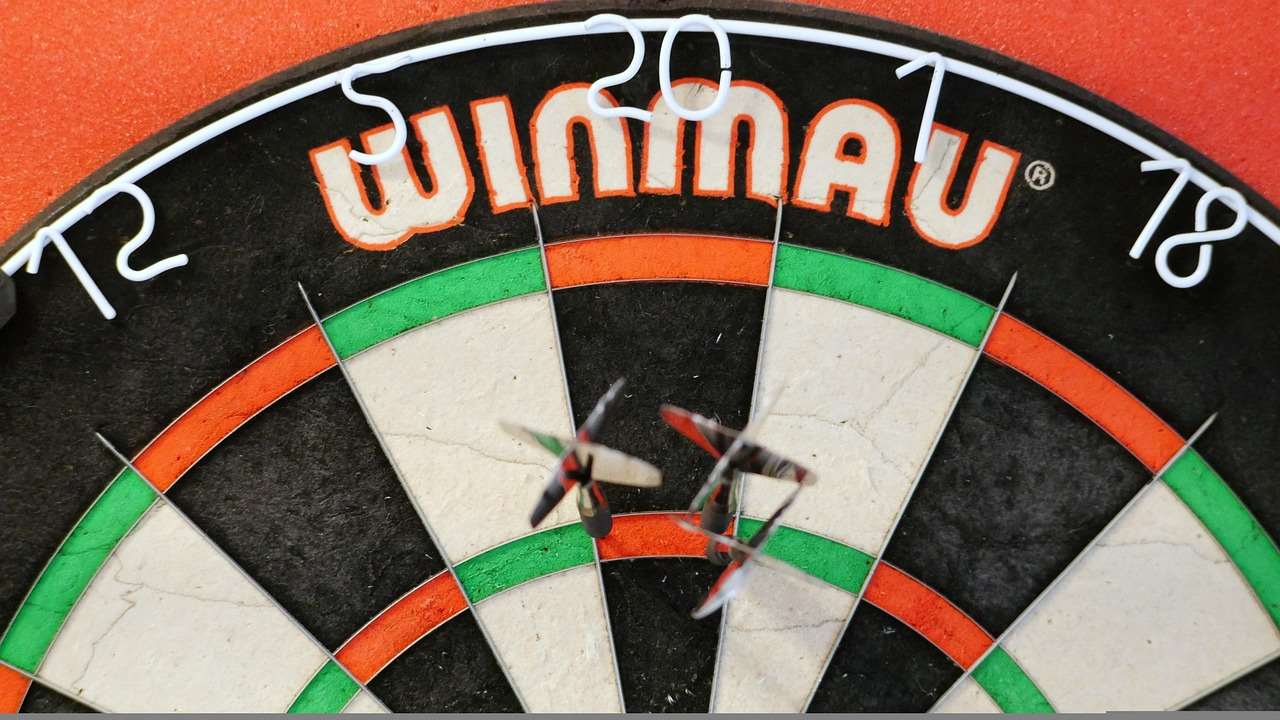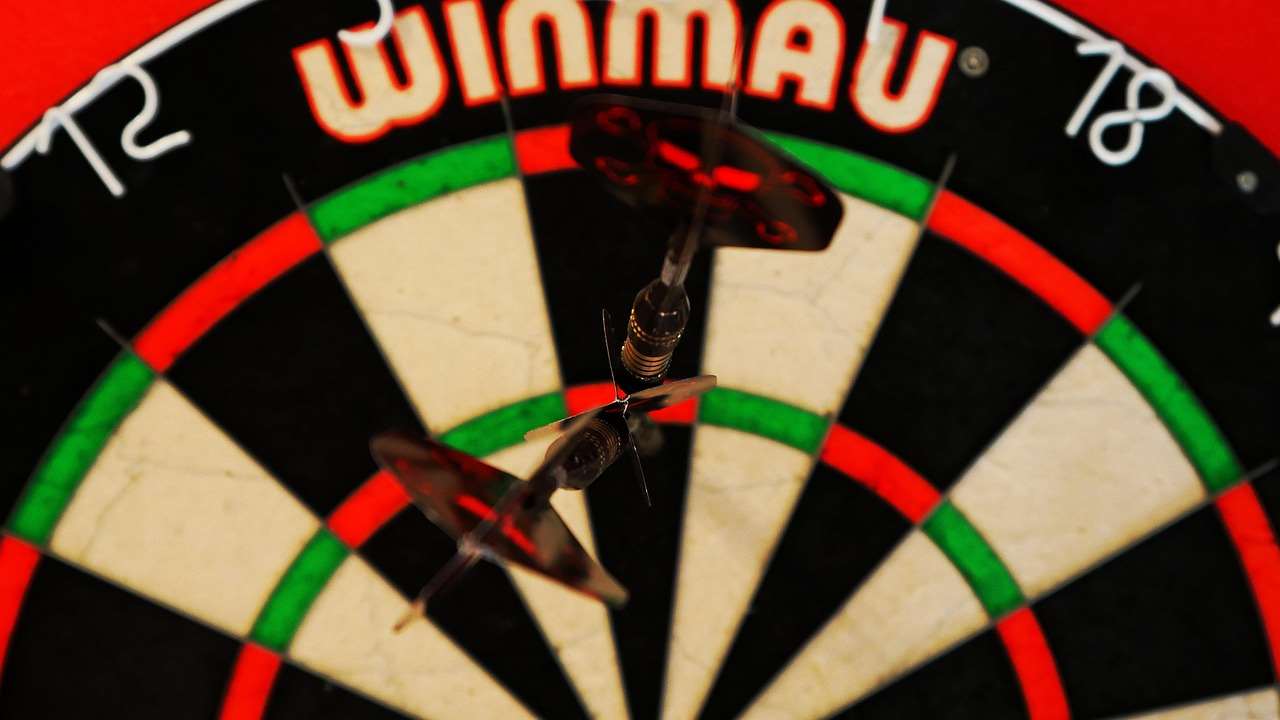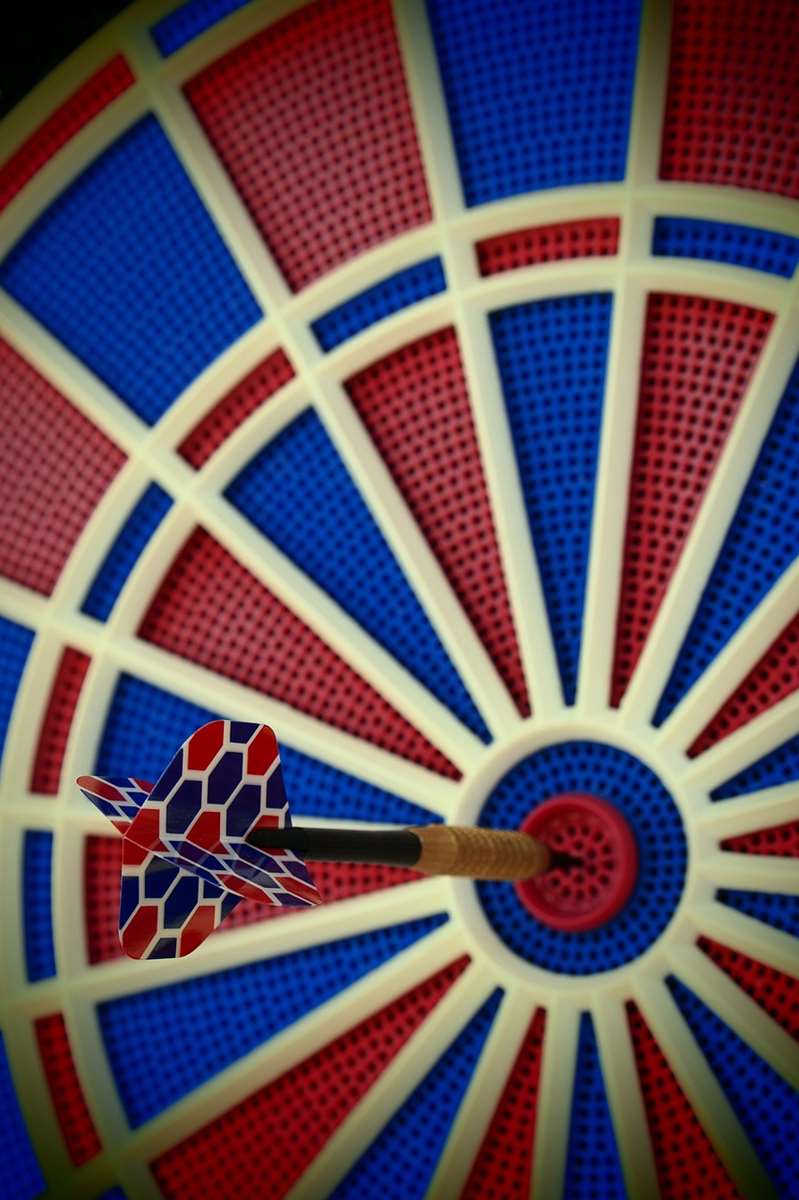The ability to definitively review dart throws with video replay is revolutionizing competitive play, ensuring **video replay bullseye decisions** are consistently accurate and fair. This article explores how video replay technology is transforming darts, its benefits, challenges, and future implications for the sport.
⚠️ Still Using Pen & Paper (or a Chalkboard)?! ⚠️
Step into the future! The Dart Counter App handles all the scoring, suggests checkouts, and tracks your stats automatically. It's easier than you think!
Try the Smart Dart Counter App FREE!Ready for an upgrade? Click above!
The Rise of Video Replay in Darts
Darts, a game steeped in tradition, is embracing technological advancements like never before. The introduction of **video replay** systems marks a significant shift, aiming to eliminate disputes and guarantee precise scoring. While traditionally relying on human judgment and simple scoreboards, modern darts competitions are increasingly leveraging high-speed cameras and sophisticated software to scrutinize each throw.
This move towards technological assistance isn’t about replacing the skill of the players; it’s about ensuring that their skill is accurately represented in the final score. Instances of ambiguous dart placements, obstructed views, or even minor board malfunctions can now be resolved with irrefutable visual evidence. This leads to fairer outcomes and enhances the overall integrity of the competition. Understanding Basic Darts Fundamentals for Beginners becomes even more crucial when high-stakes matches depend on precise calls.

Benefits of Video Replay Bullseye Decisions
The implementation of **video replay bullseye decisions** offers a multitude of advantages, fundamentally altering how darts tournaments are conducted and perceived:
- Enhanced Accuracy: The primary benefit is, undoubtedly, improved accuracy. Close calls that were previously subject to debate can now be reviewed frame-by-frame to determine the dart’s exact position.
- Reduced Errors: Human error is inevitable, especially under pressure. Video replay minimizes the impact of subjective judgment, ensuring consistent and objective evaluations.
- Increased Fairness: With clear visual evidence, players can be confident that the scoring is equitable. This fosters a sense of trust and sportsmanship.
- Reduced Disputes: Ambiguous situations are now resolved quickly and decisively, preventing prolonged arguments and maintaining the flow of the game.
- Improved Fan Experience: Viewers at home and in the audience benefit from the clarity and transparency that video replay provides. Replays offer opportunities for in-depth analysis and enhance the overall entertainment value.
Quantifying the Impact: Statistics on Improved Accuracy
While anecdotal evidence points to the positive impact of video replay, statistical analysis further reinforces its value. Studies have shown a significant decrease in scoring discrepancies in tournaments where video replay is utilized. For instance, a study by the Professional Darts Corporation (PDC) revealed a reduction in scoring errors by approximately 15% after the introduction of comprehensive **replay systems**. This translates to fewer challenges, more accurate final scores, and a greater sense of confidence among players and fans alike.
Challenges in Implementing Video Replay Systems
Despite the numerous benefits, integrating **video replay** technology into darts isn’t without its challenges. Several factors need careful consideration to ensure a smooth and effective implementation:
- Cost: High-quality camera systems, sophisticated software, and trained personnel can be expensive. This can be a barrier for smaller tournaments or organizations with limited budgets.
- Technical Complexity: Setting up and maintaining a reliable video replay system requires technical expertise. Calibration, synchronization, and seamless integration with existing scoring infrastructure are crucial.
- Potential for Delays: Excessive reliance on video replay can disrupt the flow of the game. Clear protocols and efficient review processes are necessary to minimize delays.
- Subjectivity Remains: Even with video replay, there can still be instances where the dart’s position is not definitively clear. In these cases, human judgment may still be required, introducing a degree of subjectivity.

Ensuring Fair and Accurate Video Replay Bullseye Decisions
To maximize the effectiveness of **video replay bullseye decisions** and mitigate potential drawbacks, several best practices should be followed:
- Multiple Camera Angles: Employing multiple high-resolution cameras from different angles provides comprehensive coverage of the dartboard, minimizing blind spots.
- High Frame Rate: Using cameras with high frame rates (e.g., 240fps or higher) captures the dart’s trajectory with greater precision, making it easier to determine the exact point of impact.
- Calibration and Synchronization: Regularly calibrate the camera system to ensure accurate measurements and synchronize the cameras to provide a unified view.
- Clear Protocols: Establish clear and well-defined protocols for when and how video replay is used. This should include specific criteria for initiating a review, time limits for making a decision, and guidelines for interpreting the evidence.
- Trained Personnel: Employ trained and experienced personnel to operate the video replay system and make informed decisions based on the available evidence. Their familiarity with adapting darts rules for beginners is helpful too.
- Transparency and Communication: Clearly communicate the video replay process to players, officials, and fans. This helps to build trust and acceptance of the technology.
Proper calibration is critical. If the system isn’t calibrated correctly, the video replay will not offer accurate readings, and may even lead to *more* disputes than before the technology was implemented. Consider investing in professional calibration services regularly.
The Future of Video Replay in Darts and Other Sports
The adoption of **video replay** in darts is just one example of a broader trend across various sports. As technology continues to advance, we can expect to see even more sophisticated systems being implemented to enhance accuracy, fairness, and the overall fan experience. What once seemed like a distant possibility is now a reality. Thinking about how to make darts fairer using handicap rules can also assist with inclusive play.
Looking ahead, several key developments are likely to shape the future of video replay:
- Artificial Intelligence (AI): AI-powered systems can automate the review process, identify potential scoring discrepancies, and provide real-time analysis to officials.
- Virtual Reality (VR): VR technology can offer immersive replay experiences, allowing viewers to examine throws from multiple perspectives and gain a deeper understanding of the game.
- Enhanced Data Analytics: Video replay data can be integrated with other performance metrics to provide valuable insights for players, coaches, and analysts.
- Wider Adoption: As costs decrease and technology becomes more accessible, video replay is likely to be adopted by a wider range of darts organizations and tournaments, including amateur leagues and local competitions.

Addressing Common Concerns About Video Replay
Despite its benefits, the introduction of **video replay** has raised some concerns among traditionalists who worry about its impact on the game’s natural flow and the role of human judgment. Here are some common concerns and how they can be addressed:
- “It slows down the game too much.” This can be mitigated by establishing clear protocols for when video replay is used, limiting the time allowed for reviews, and employing efficient review processes.
- “It takes away from the human element.” While video replay reduces human error, it doesn’t eliminate it entirely. Human judgment is still required in interpreting the evidence and making final decisions.
- “It’s too expensive.” As technology evolves, the cost of video replay systems is likely to decrease, making them more accessible to a wider range of organizations.
- “It’s too complicated.” User-friendly interfaces and training programs can help to simplify the operation of video replay systems and make them easier to use.
Related Technologies: Enhancing the Viewing Experience
Beyond **video replay bullseye decisions**, other technological advancements are enhancing the darts viewing experience. These include:
- Live Scoreboards: Real-time scoreboards that display scores, averages, and other key statistics.
- Shot Trackers: Systems that track the trajectory of the dart and provide visualizations of its path.
- Interactive Graphics: On-screen graphics that provide insights into the game and highlight key moments.
- Social Media Integration: Platforms that allow fans to interact with the game and share their thoughts and opinions.

Training and Certification for Video Replay Officials
To ensure the integrity and consistency of **video replay bullseye decisions**, it’s crucial to establish standardized training and certification programs for video replay officials. These programs should cover:
- Technical Operation: How to operate the video replay system, including camera calibration, synchronization, and software usage.
- Rules and Regulations: A thorough understanding of the rules of darts and the protocols for using video replay.
- Decision-Making: How to interpret the evidence and make informed decisions based on the available information.
- Communication Skills: How to communicate effectively with players, officials, and fans.
Certification should be required for all video replay officials, and ongoing training should be provided to keep them up-to-date on the latest technology and best practices. These training programs will help improve gameplay, whether adapting dart game rules for children or officiating pro games.

Conclusion: A New Era for Precision in Darts
**Video replay bullseye decisions** represent a significant leap forward in the pursuit of fairness and accuracy in darts. While challenges exist, the benefits of this technology are undeniable. By embracing video replay and implementing best practices, darts can ensure that every point is earned fairly and that the sport remains a testament to skill and precision. As technology continues to evolve, we can expect to see even more innovations that enhance the game for players, officials, and fans alike. Take the next step and explore incorporating video replay in your local dart leagues today!
Hi, I’m Dieter, and I created Dartcounter (Dartcounterapp.com). My motivation wasn’t being a darts expert – quite the opposite! When I first started playing, I loved the game but found keeping accurate scores and tracking stats difficult and distracting.
I figured I couldn’t be the only one struggling with this. So, I decided to build a solution: an easy-to-use application that everyone, no matter their experience level, could use to manage scoring effortlessly.
My goal for Dartcounter was simple: let the app handle the numbers – the scoring, the averages, the stats, even checkout suggestions – so players could focus purely on their throw and enjoying the game. It began as a way to solve my own beginner’s problem, and I’m thrilled it has grown into a helpful tool for the wider darts community.